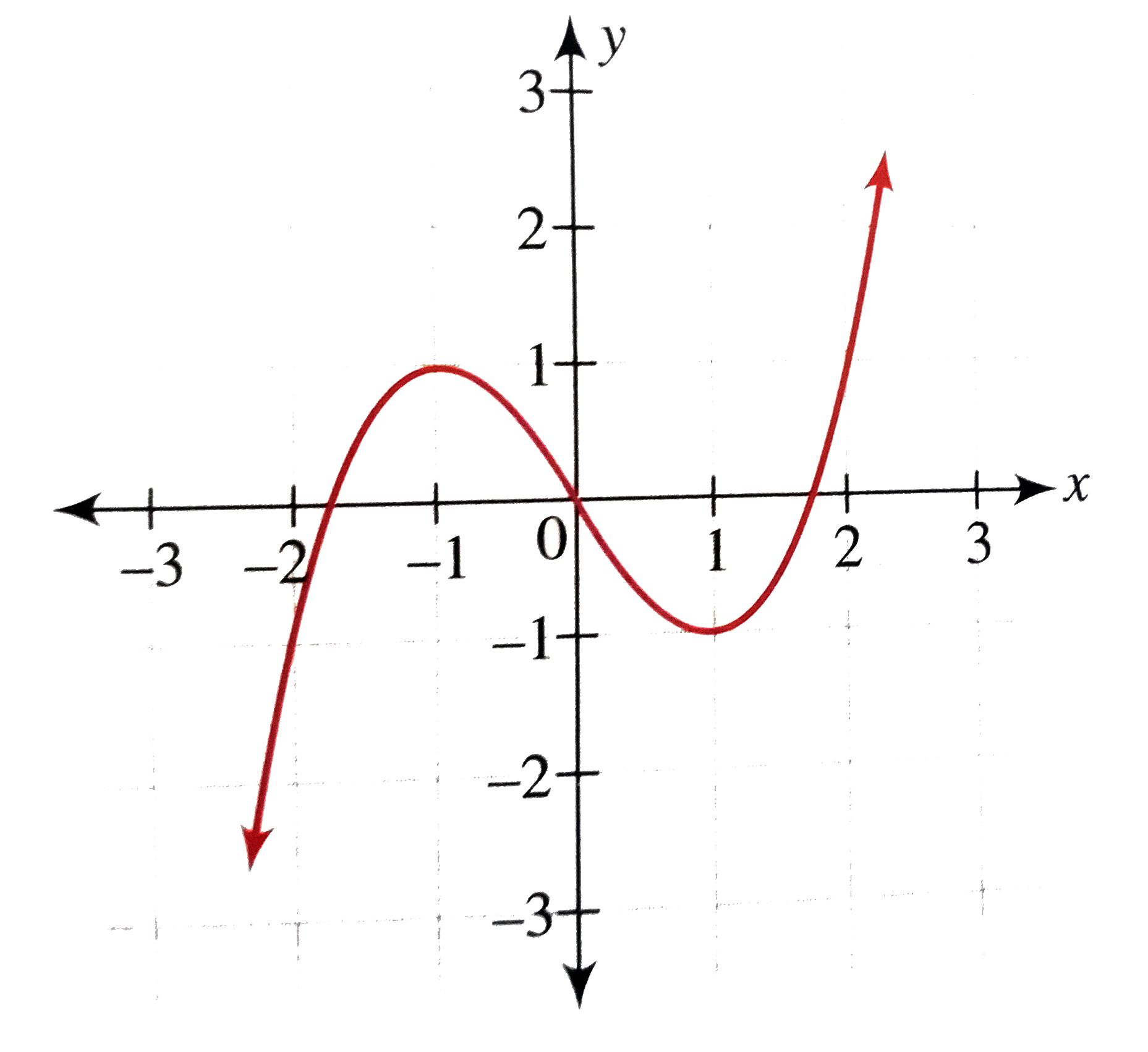f:[1,∞)→R:f(x) is a monotonic and differentiable function and f(1)=1 , then number of solutions of the equation f(f(x))=1x2−2(x)+2 is /are
2
1
infinite
zero
The correct Answer is:B
Topper's Solved these Questions
- APPLICATION OF DERIVATIVEBOOK - FIITJEECHAPTER - APPLICATION OF DERIVATIVEEXERCISE - Exercise 1
2 Videos
- APPLICATION OF DERIVATIVEBOOK - FIITJEECHAPTER - APPLICATION OF DERIVATIVEEXERCISE - Exercise 2
3 Videos
- APPLICATION OF DERIVATIVEBOOK - FIITJEECHAPTER - APPLICATION OF DERIVATIVEEXERCISE - SOLVED PROBLEMS (Subjective)
13 Videos
- AREABOOK - FIITJEECHAPTER - AREAEXERCISE - Numerical Based
3 Videos
Similar Questions
Knowledge Check
If f (x) is monotonic differentiable function on [a,b] then ∫baf(x)dx+∫f(b)f(a)f−1(x)dx=
Abf(a)−af(b)Bbf(b)−af(a)Cf(a)+f(b)Dcannot be found
Let f(x)=2x+1.∀x∈R, then the solution of the equation f(x)=f−1(x) is
View SolutionThe graph of the function y=f(x) is shown.

Find the number of solutions to the equation ||f(x)|−1|=12.
View SolutionThe graph of the function y=f(x) is shown.

Find the number of solutions to the equation ||f(x)|−1|=12.
View SolutionLet y=f(x) be a differentiable function such that f(−1)=2,f(2)=−1 and f(5)=3 then the equation f'(x)=2f(x) has
View SolutionLet f(x) be a differentiable function satisfying the equation f'(x)=−f(x)f(−x) and f(0)=12 ,then which is/are correct?
View SolutionLet F:[3,∞]→[1,∞] be defined by f(x)=πx(x−3), if f−1(x) is inverse of f(x) then the number of solution of the equation f(x)=f−1(x) are
View SolutionLet F:[3,∞]→[1,∞] be defined by f(x)=πx(x−3), if f−1(x) is inverse of f(x) then the number of solution of the equation f(x)=f−1(x) are
View Solution
